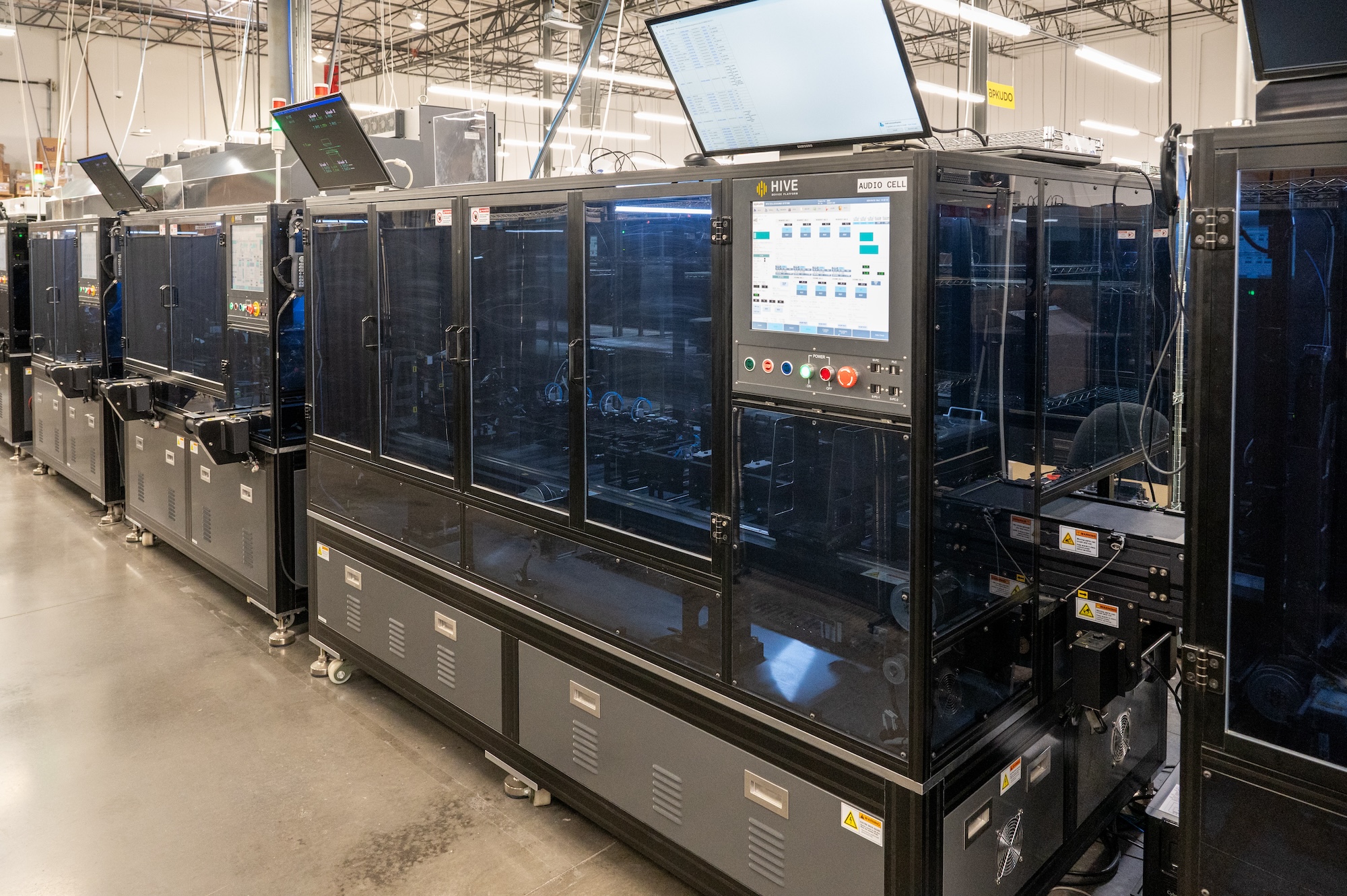
Innovation is about rethinking the process, questioning what’s possible, and finding a balance between the art of human insight and the precision of technology. In the world of mobile device grading, this balance has never been more crucial. Apkudo is tackling this head-on in the first episode of their new video podcast series, “Tech vs Touch: The Evolution of Cosmetic Grading”, now featured on the Cyculus website.
In this groundbreaking episode, Allyson Mitchell, VP of Sustainability at Apkudo, joins Asa Gismervik, Director of Quality Assurance, to dive deep into the complexities of cosmetic grading in the secondary market. It’s a conversation that explores the delicate dance between human judgment and robotic precision, and it’s setting the stage for a new era in device processing.
The challenge is simple yet profound: humans don’t always agree on what they see. In the context of cosmetic grading, this subjectivity introduces inconsistency—a problem Apkudo aims to solve. But it’s not just about replacing human touch with machine precision; it’s about harmonising the two.
Allyson and Asa kick off the episode by discussing the dual aspects of device grading: functional and cosmetic states. Asa highlights the impact that accurate grading has on resale value and customer satisfaction, pointing out the risks of both overgrading and undergrading. It’s a problem that needs a solution beyond mere automation, and Apkudo is pioneering a new alignment process that aims to bridge this gap.
A key theme in this episode is the importance of blind assessments. Humans are inherently subjective, and so are the algorithms we create if left unchecked. Asa shares his insights into why blind assessments are critical—they ensure that the machine’s evaluation isn’t influenced by preconceived human biases.
This human-machine collaboration is about more than just plugging in an algorithm. It’s about refining it, testing it against large sample runs, and making sure it doesn’t fall into the trap of overfitting to specific datasets. Asa delves into the challenges of teaching machines to interpret cosmetic conditions as humans do, all while maintaining consistency across varied supply chain scenarios.
The heart of this episode lies in the complementary nature of human judgment and machine accuracy. Machines offer precision, the kind that can detect minute imperfections consistently. But it’s the human element that provides context and intent—things that a machine cannot inherently discern. Asa outlines the tools and guidelines used by human graders, comparing them to the precision capabilities of automated systems. It’s a fascinating look at how the two approaches can work together, rather than in opposition.
One of the most significant risks in developing AI grading systems is the potential for overfitting algorithms to specific datasets. Asa emphasises the need for large sample runs to refine these algorithms, allowing them to adapt and perform well across a broader range of devices. It’s a process of continual improvement, much like any great innovation—always learning, always refining.
As the conversation progresses, Asa discusses the vision for a standardised approach to cosmetic grading, one that harmonises the efforts of humans, machines, and supply chain partners. It’s about creating a common language for grading, reducing inconsistencies, and ultimately, building trust across the entire secondary market.
This isn’t just about grading devices; it’s about redefining the process from the ground up. By leveraging human intent to teach robotic systems, Apkudo is setting a new standard—one that aims for greater alignment and efficiency. The goal is clear: a more consistent, reliable market for connected devices, where every player in the supply chain benefits.
Asa closes the episode with a look ahead at the future of human-machine collaboration in device grading. He’s excited about moving beyond traditional customer relationships, focusing instead on true partnerships. It’s about working collaboratively to refine grading standards, not just for Apkudo but for the entire industry. This vision of alignment, where humans and machines work seamlessly together, points towards a future of greater efficiency, accuracy, and transparency.
The insights shared in this episode are just the beginning of a deeper exploration into the challenges and innovations shaping the secondary mobile market. Apkudo’s commitment to balancing technology with human expertise is paving the way for a more standardised, reliable approach to cosmetic grading—one that Cyculus is proud to feature on our platform.
We invite you to watch the full episode, “Tech vs Touch: The Evolution of Cosmetic Grading,”. It’s an eye-opening look at the future of device processing and the role of human-machine collaboration in setting new industry standards.
Stay tuned for more episodes in this exciting new series, and follow us on LinkedIn, Twitter, and Facebook to stay updated on the latest innovations from Cyculus and Apkudo.